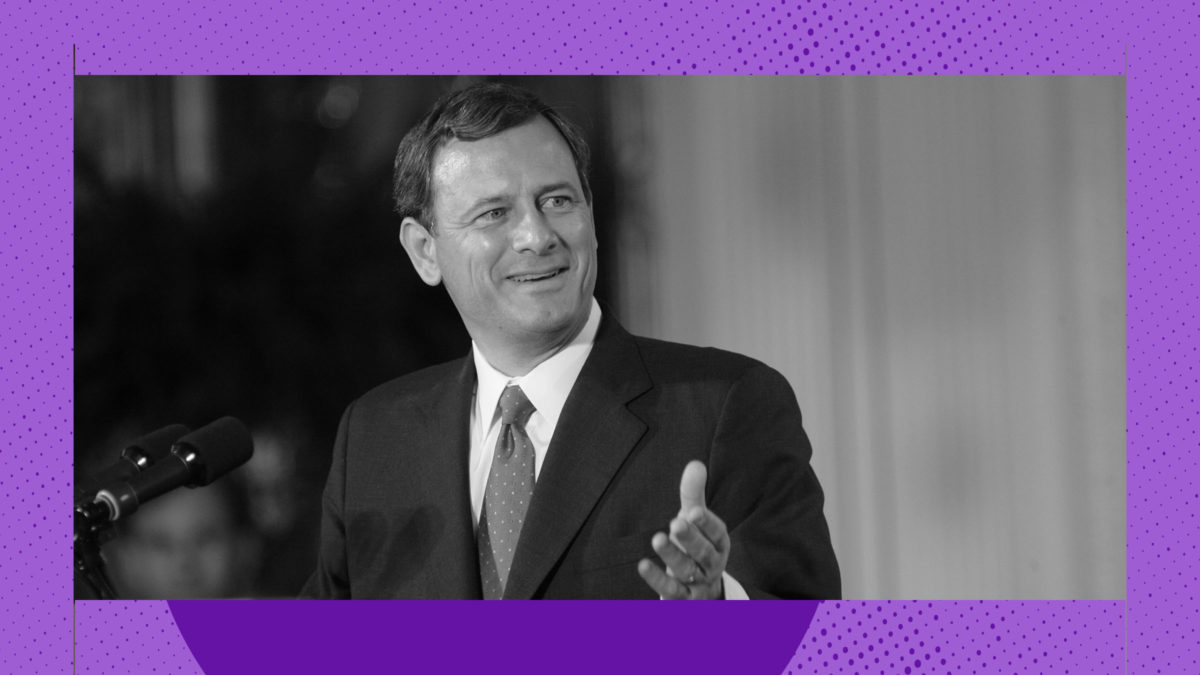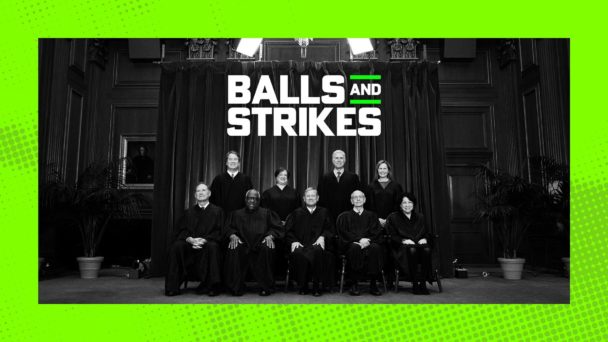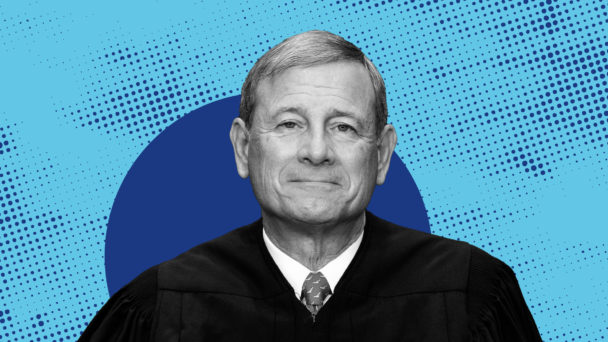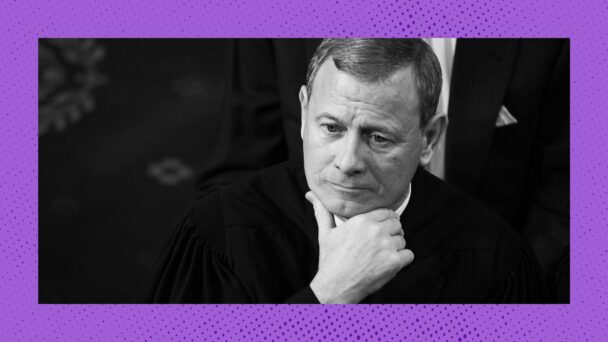In early 1981, there was probably no more exciting place for young, ambitious Republican lawyers than the U.S. Department of Justice, which the journalist Ari Berman has described as “the nerve center of the Reagan revolution, the most intellectually vibrant and ideologically conservative agency of the federal government.” Among the well-credentialed conservative attorneys flocking to Washington was 26-year-old John Roberts, who took a job as a special assistant to Attorney General William French Smith. At the DOJ, Roberts quickly began working on one of the most pitched political battles of the early Reagan era: the 1982 reauthorization of the Voting Rights Act, which Congress had first enacted 17 years earlier.
At the time, lawmakers were principally concerned with the future of Section 2 of the statute, which generally bars state and local governments from implementing policies that discriminate against minority voters. In 1980, the Supreme Court had weakened Section 2 by ruling in City of Mobile v. Bolden that in order to prove a violation, voters had to show that officials had intentionally discriminated against minorities—not just that a facially neutral policy had had a discriminatory effect.
Lawyers in the Reagan Justice Department were delighted with this result, but by 1982, a bipartisan group of lawmakers was pushing an amendment to the Voting Rights Act that would functionally overrule City of Mobile, thus strengthening Section 2’s protections for minority voters. As lawmakers debated on Capitol Hill, Roberts’s task within the Justice Department was to come up with the administration’s arguments against the proposed amendment, while minimizing the odds that Reagan would get labeled as racist for doing so.
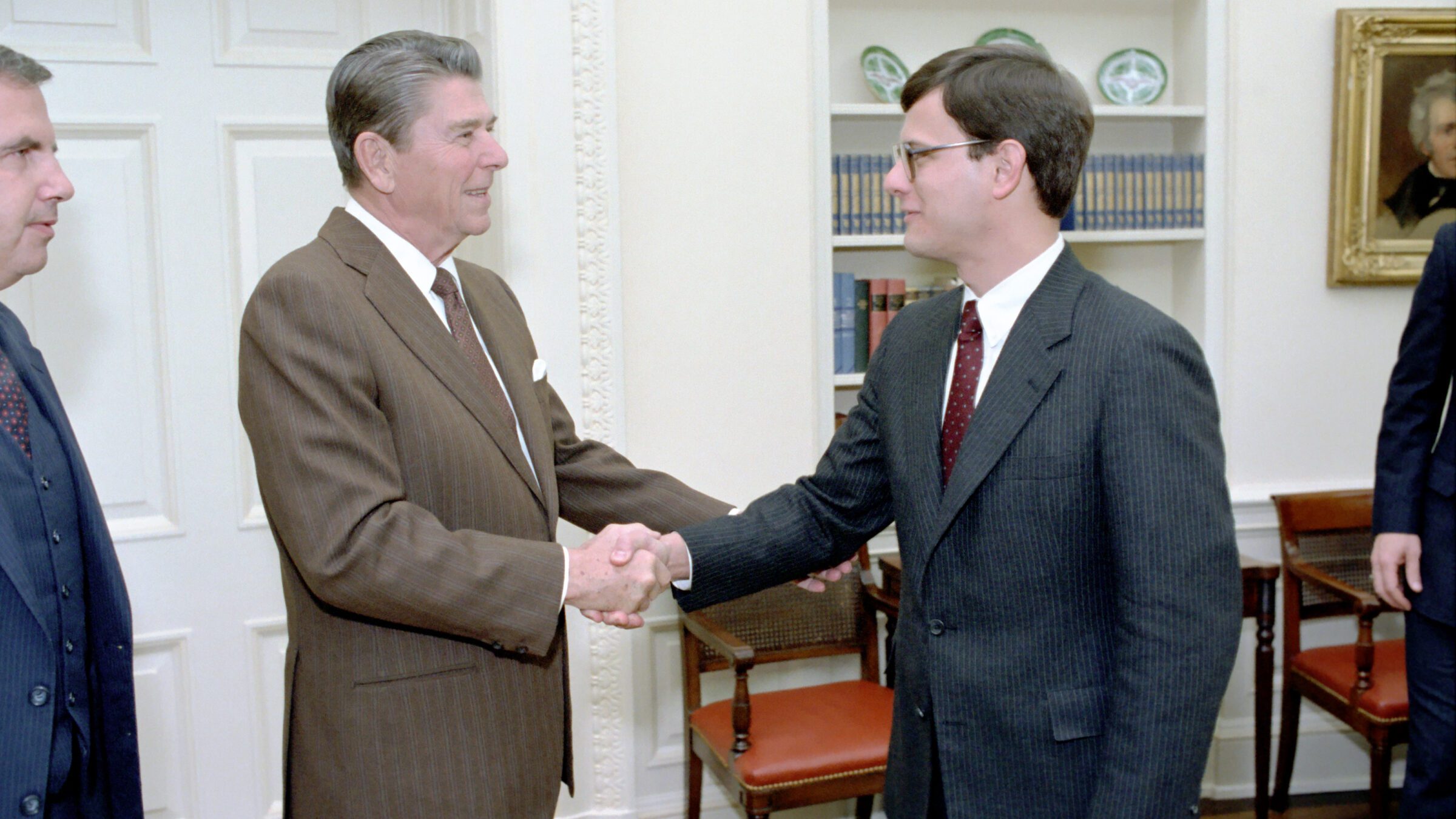
Roberts shakes hands with President Ronald Reagan in the Oval Office, January 1983 (Reagan Library/National Archives)
Roberts’s memos from this period indicate that he took the assignment very seriously. Violations of Section 2, he wrote, should not be “too easy to prove, since they provide a basis for the most intrusive interference imaginable by federal courts into state and local processes.” In another memo, Roberts argued that creating an “effects test” within the Voting Rights Act was unnecessary, because there was “no evidence of voting abuses nationwide supporting the need for such change.” He urged Smith, his boss, to take an “aggressive stance” against the proposed amendment, and to not be “fooled” by its supporters. Colleagues recalled Roberts getting frustrated with what he perceived as the administration’s reluctance to more vociferously attack the proposal, and described him as a “zealot” who harbored “fundamental suspicions” about the Voting Rights Act’s utility, as Berman recounts in his 2015 book, Give Us the Ballot.
Roberts lost the battle: When Congress reauthorized the Voting Rights Act in 1982, it indeed overruled City of Mobile, clarifying that Section 2 prohibits voting practices that have a discriminatory effect, regardless of discriminatory intent. Fortunately for Roberts, in the years since, his power as a federal judge—first on the D.C. Circuit, and then as Chief Justice of the United States—has afforded him plenty of opportunities to rewrite the Voting Rights Act as he would have preferred.
In 2013, Roberts’s majority opinion in Shelby County v. Holder effectively invalidated Section 5 of the statute, which required states with histories of racist voter suppression to “pre-clear” changes to their election laws with the Justice Department. In his opinion in Shelby County, Roberts asserted that “things have changed dramatically” since the Voting Rights Act’s enactment, thus making its protections no longer necessary—a version of the same “no evidence of voting abuses” argument he’d made as a Reagan staffer many years before.
In Shelby County, Roberts was careful to note that hollowing out Section 5 “in no way affects the permanent, nationwide ban on racial discrimination” found in Section 2. But with Section 5 at last out of the way, Roberts and the other Republican justices have been chipping away at Section 2 ever since. In 2018 and 2021, he joined the majorities in Abbott v. Perez and Brnovich v. DNC, which together made it harder for voters to prove that discriminatory policies are “intentional.”
In 2023, Roberts surprised many by passing on an invitation to undermine Section 2’s “effects test,” but he made clear his intent to do so eventually. In his majority opinion in that case, Allen v. Milligan, Roberts said that when Congress reauthorized the Voting Rights Act in 1982, City of Mobile “had its defenders,” and he described concerns that Section 2 “may impermissibly elevate race in the allocation of political power” as “not new.” Roberts would know—he’d been a staunch supporter of City of Mobile, and had been harboring those “concerns” for the better part of five decades.

(Photo by Chip Somodevilla/Getty Images)
At oral argument in Callais, Roberts allowed his colleagues to do most of the talking, but one of his few questions revealed just how excited Roberts is to finish the job. When the Court decided Milligan, he pointed out, he and the other justices “took the existing precedent as a given.” But Callais is a different case with different stakes: This time, the justices have explicitly stated that they are reconsidering whether that “existing precedent,” which allows states to draw maps that protect minority groups’ ability to elect candidates of their choice, has actually been unconstitutional all along.
Roberts’s eagerness to make this distinction provides further support for what anyone with a passing familiarity with his life’s work would have guessed: He has always known his answer to this question. All that’s left to do is memorialize it in the U.S. Reports.
I have written before about how traditional Supreme Court journalism’s myopic focus on technical questions and judicial philosophies too often obscures the motives of the real people who are empowered to make these decisions. Right now is an especially bad time for journalists to make this mistake, because an opinion in Callais that guts Section 2 will not be the product of a careful, rigorous application of Supreme Court precedent, or a philosophical debate about what the Fourteenth Amendment’s text allows. John Roberts has dedicated his career to breaking the promises of the Voting Rights Act by any means necessary. It will be his privilege to finally kill it off.
